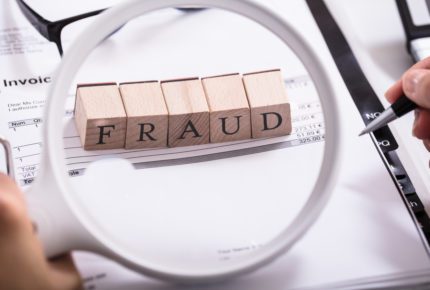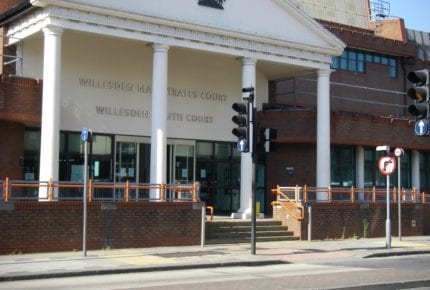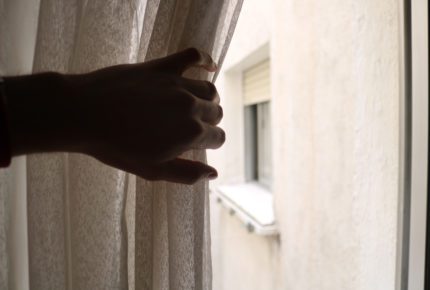

Accusations of producing indecent images represent some of the most devastating charges the criminal law recognises, carrying implications that extend far beyond legal penalties to encompass the complete destruction of your reputation, relationships, and any semblance of the life you once knew. This article will provide detailed analysis of the law relating to production of indecent images, explore the stringent sentencing guidelines that govern these cases, investigate the virtually non-existent prospects for suspended sentences, and outline the steps you might take to potentially influence how severely you are punished for what the law and society consider among the most reprehensible forms of criminal behaviour.
What is producing indecent images?
Producing indecent images involves the creation of original photographs, films, or digital images depicting children under 18 years of age in indecent or sexual situations, representing the most serious form of child exploitation imagery offences under the Protection of Children Act 1978. This offence criminalises the actual creation of prohibited material at source, distinguishing it from downloading or possession charges by recognising the direct and immediate harm caused to child victims during the production process.
The legislation encompasses various methods of image creation including traditional photography, digital photography, video recording, and increasingly sophisticated technological approaches such as live-streaming sexual abuse to online audiences. Production can occur in any setting where children are exploited for the creation of sexual imagery, from domestic environments to organised commercial operations, and may involve single perpetrators or multiple individuals working together.
The categorisation system applies equally to produced images, with Category A encompassing material showing penetrative sexual activity, bestiality, or sadistic abuse; Category B covering non-penetrative sexual activity; and Category C including other indecent material such as provocative posing or nudity. However, the production context means that even lower-category material represents serious criminal behaviour given the direct exploitation involved in its creation.
What are the usual sentences for producing indecent images?
Producing indecent images carries a maximum sentence of 10 years’ imprisonment under the Protection of Children Act 1978, though courts have considerable discretion in applying this penalty according to the specific circumstances of each case and established sentencing guidelines that reflect the extreme gravity of this offending.
The Sentencing Council’s definitive guidelines establish starting points and ranges that acknowledge production as representing the most serious category of indecent image offending due to the direct harm inflicted on child victims. For Category A production offences involving the most serious sexual abuse imagery, the starting point is six years’ custody with a sentencing range of four to nine years before consideration of aggravating and mitigating factors.
Category B production offences, involving non-penetrative sexual activity, attract a starting point of two years’ custody with a range of one to four years, while Category C production carries a starting point of 18 months with a range of one to three years. These substantial sentences reflect judicial recognition that all production involves direct exploitation of children, regardless of the specific sexual content depicted in the resulting images.
What is a suspended sentence and how does it work?
A suspended sentence enables courts to impose custodial terms while acknowledging that exceptional circumstances may justify allowing defendants to serve their sentences in the community under strict supervision rather than in prison. The court sets both the duration of the custodial sentence and the suspension period, ranging from six months to two years, during which compliance with conditions and avoidance of further offending are mandatory.
Successful completion of all requirements throughout the suspension period results in the sentence being deemed served without any time spent in custody, effectively providing a final opportunity to demonstrate rehabilitation and law-abiding behaviour. Conversely, breach of conditions or commission of new offences during the operational period typically results in activation of the suspended sentence, either wholly or partially, in addition to penalties for any fresh criminal activity.
Can producing indecent images result in a suspended sentence?
The prospect of receiving a suspended sentence for producing indecent images is extraordinarily remote, existing only in theoretical legal terms rather than as a realistic possibility in virtually all practical circumstances. Courts approach production offences with extreme gravity, recognising that this conduct involves direct and immediate harm to child victims that distinguishes it fundamentally from other forms of indecent image offending.
The inherent seriousness of production offences means that suspended sentences would only be contemplated in the most exceptional circumstances involving overwhelming personal mitigation combined with evidence that the offending was entirely aberrant and the risk of repetition is virtually non-existent. Such circumstances might theoretically include cases where severe mental illness substantially diminished responsibility at the time of offending, where you have demonstrated extraordinary insight and remorse, and where comprehensive professional assessment confirms minimal risk of future harmful behaviour.
What factors do courts consider when deciding on a suspended sentence for producing indecent images?
In the virtually non-existent circumstances where courts might consider suspended sentences for production of indecent images, the decision-making process would require the most exceptional mitigation to justify such an unusual approach to sentencing for this grave category of offending.
- The specific circumstances surrounding the production would undergo the most detailed examination, with courts potentially considering factors such as the limited scale of production activity, the absence of commercial motivation or organised criminal involvement, evidence that production was not part of systematic or ongoing exploitation, and demonstration that victims suffered less severe trauma than typically associated with such offences.
- Comprehensive mental health assessment would be essential to establish any psychiatric conditions that substantially impaired your judgment or control at the time of offending, with courts requiring expert evidence that such conditions were genuine, serious, and amenable to effective treatment that would eliminate risks of future offending.
- Your response to discovery and the subsequent legal process would receive intense scrutiny, with courts seeking evidence of genuine insight into the devastating impact of production offences on child victims, authentic expressions of remorse that acknowledge the full gravity of the harm caused, and proactive steps taken to address any factors that contributed to the offending behaviour.
- The availability of exceptional supervision and treatment arrangements in the community would need to be clearly established, with detailed proposals for how public protection could be maintained while allowing access to the intensive interventions necessary for rehabilitation.
How serious does producing indecent images have to be for a prison sentence?
Given that producing indecent images represents one of the most serious forms of child exploitation recognised by criminal law, virtually all cases result in immediate imprisonment regardless of the specific circumstances involved. The question is not whether production is sufficiently serious to warrant custody, but rather what length of imprisonment is appropriate given the particular facts.
The threshold for immediate imprisonment is effectively presumptive for production offences, reflecting the direct harm inflicted on child victims during the creation process and the lasting trauma associated with knowledge that their abuse has been recorded for the sexual gratification of others. Even cases that might be considered at the lower end of the spectrum still involve the deliberate exploitation of children for sexual purposes, warranting substantial custodial sentences.
Cases involving multiple victims, commercial exploitation, sophisticated production techniques, or creation of particularly serious category material will attract sentences towards the higher end of available ranges. However, even isolated incidents involving single victims and less serious category imagery typically result in several years’ immediate imprisonment given the fundamental seriousness of any production activity.
What can I do to improve my chances of getting a suspended sentence for producing indecent images?
While acknowledging that suspended sentences for production of indecent images are extraordinarily unlikely and that immediate imprisonment is the virtually inevitable outcome, certain steps may potentially influence the court’s overall approach to sentencing, even if they are more likely to affect the length of custody rather than whether imprisonment can be avoided entirely.
- Obtaining immediate comprehensive psychiatric and psychological assessment by leading experts in forensic mental health and sexual offending behaviour provides the only potential foundation for arguments about diminished culpability based on mental health factors.
- Cooperating fully with investigations, including providing complete access to digital devices and information about the scope of your offending, shows acceptance of responsibility and may assist in protecting other potential victims.
- Preparing the most comprehensive character evidence possible from family members, employers, and community contacts who can speak to your previous good character and positive contributions to society may help establish context for your offending and support arguments that the behaviour was completely aberrant.
- Taking immediate steps to restrict your own access to children and technology demonstrates practical recognition of risk factors and commitment to ensuring no further harm can occur.
Where to get more help
Charges involving production of indecent images represent the most serious allegations in the field of child exploitation offences and require immediate representation by legal professionals with unparalleled expertise in defending the gravest cases in the criminal justice system. Stuart Miller Solicitors has experience representing clients facing production charges and fully comprehends the catastrophic implications these allegations carry for every aspect of your existence and that of your family. Contact us for urgent, confidential, and expert advice, specifically tailored to address the challenges of your situation.
OUR COMMITMENTS TO YOU:
-
Responsive
A legal expert will consult you within 24 hours of making an enquiry.
-
Empathetic
We will always treat you with trust, understanding and respect.
-
Specialised
Your case will be handled by an expert who specialises in your type of offence.
-
Proactive
We will take early action to end proceedings as soon as it is practically and legally possible to do so.
-
Engaged
You will be kept updated on your case at all times. We will provide a named contact available to answer your questions.
-
Caring
We understand this is a difficult and stressful time for you and your family. Our team will support you every step of the way.
-
Tenacious
We will never give up on your case. We fight tirelessly to get you the best possible outcome.

